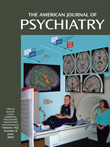To the Editor: As a clinician and researcher who is interested in the effects of gambling in later life, I wish to comment on the recent article by Rani A. Desai, Ph.D., M.P.H., et al.
(1). The authors examined data collected in 1998 by the National Opinion Research Center. The instrument used was the Gambling Impact and Behavior Study Survey, which is designed to measure gambling behavior and the impact of gambling behavior on selected psychosocial issues. For example, questions on this instrument refer to the number of times an individual has gambled at a casino, how far the person traveled to the casino, how much time was spent there, the type of game played, the amount of money spent, and the amount of money either lost or won at the end of the day. Gambling in lotteries and small business settings and pari-mutuel betting are assessed with similar questions. There are also questions that would indicate problem gambling behavior, such as did you gamble more than you intended? Have you tried to stop, cut down, or control gambling? And are there problems in relationships because of gambling? To further assess the impact, there are questions about legal issues, such as were arguments emotionally harmful? Did an argument ever become physical? And have you ever been arrested?
The abstract of the article states that “recreational gambling in older adults is not associated with negative measures of health and well-being” (p. 1672) when compared with younger adults. This finding is misleading in that Table 2 reports that older adult recreational gamblers have higher rates of past-year alcohol use, abuse, lifetime depression, lifetime incarceration, and lifetime bankruptcy than nongamblers in their age group. Younger adults as well experience higher rates of past-year alcohol use, abuse, lifetime depression, lifetime incarceration, and lifetime bankruptcy than nongamblers in their age group. It appears that gamblers of all ages experience negative measures of health; however, the severity is greater for the younger adult population.
Additionally, there is a limitation that perhaps should have been noted. There is only one question in the 178-question survey that asks respondents to describe their general health. Since “the objective of this study was to identify health and well-being correlates of past-year recreational gambling in adults age 65 years and older, compared to adults age 18–64 years” (p. 1672), a more comprehensive instrument specifically designed to measure general health status could have been employed. The
Handbook of Psychiatric Measures (2) offers the Short Form-36 Health Survey and the Duke Health Profile as examples. In summary, because of the actual and potential negative consequences associated with recreational gambling among older adults, findings need to be reported cautiously and comprehensively.

